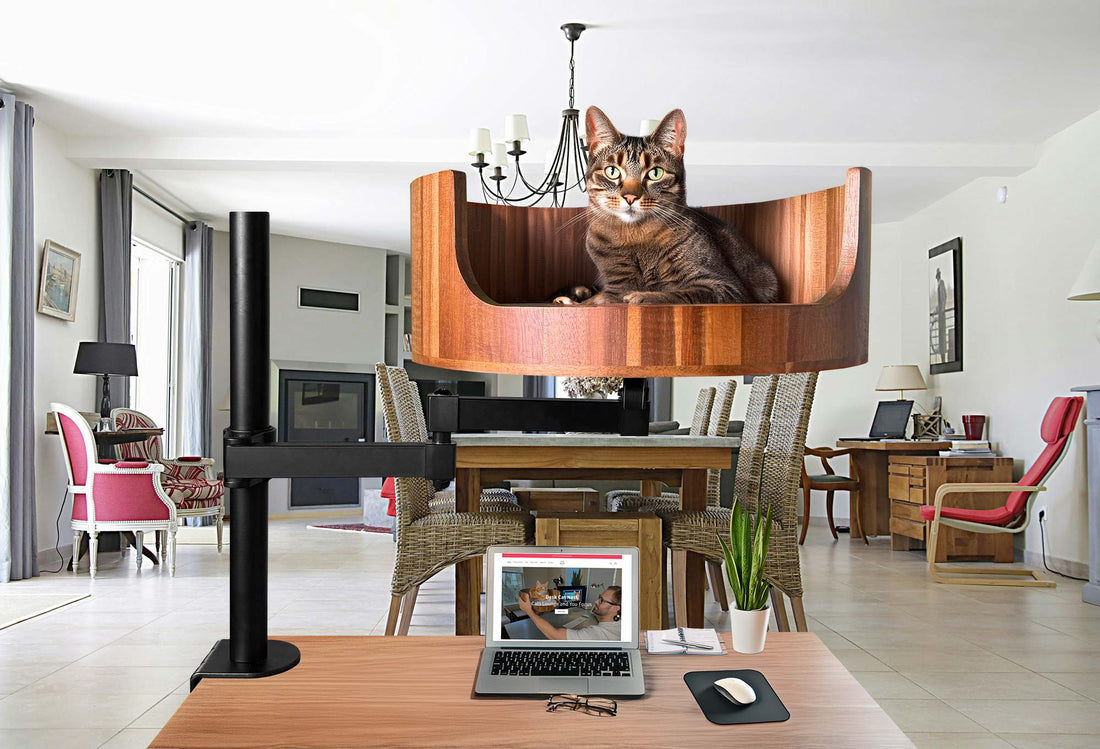
Why Does My Cat Keep Yowling? Understanding the Behavior
Share
Is your cat constantly yowling, leaving you feeling confused and frustrated? Understanding this behavior is crucial for both the well-being of your furry friend and your own peace of mind. In this article, we will explore the reasons behind why cats yowl and how you can address this behavior to create a harmonious environment for both you and your pet.
From territorial instincts to medical issues, there are a variety of reasons why your cat may be yowling. By delving into the psyche of your feline companion, we can uncover the underlying causes behind this vocalization. Additionally, we will discuss strategies for managing and reducing yowling behavior, whether through environmental enrichment, playtime, or seeking veterinary advice. With a better understanding of why your cat is yowling, you can take proactive steps to improve your cat's quality of life and restore peace to your home.
1. Cats may yowl for various reasons, including seeking attention, expressing pain, or feeling anxious.
2. Understanding your cat's body language can help you determine the cause of their yowling.
3. Providing mental and physical stimulation, such as interactive toys and regular play sessions, can help reduce excessive yowling.
4. Regular veterinary check-ups are essential to rule out any underlying medical conditions that may be causing yowling.
5. Maintaining a consistent routine and creating a calm environment can help prevent stress-related yowling in cats.
Causes of Yowling in Cats
Yowling in cats can have various causes, including medical issues, attention-seeking behavior, mating instincts, territorial issues, stress, anxiety, or boredom. It is essential to observe your cat's yowling to understand the underlying reason behind it and address the root cause effectively.
Medical Issues
One of the most common reasons for a cat to yowl excessively is due to underlying medical problems such as urinary tract infections, hyperthyroidism, arthritis, dental pain, or gastrointestinal issues. If your cat's yowling behavior is unusual or persistent, it is crucial to take them to the vet for a thorough examination and appropriate treatment.
Attention-Seeking Behavior
Cats are known for being attention seekers, and yowling can be their way of demanding your focus or company. If your cat yowls whenever you are not paying attention to them, try spending more time playing, petting, or interacting with them to minimize this behavior.
Mating Instincts
Unspayed female cats may yowl loudly when they are in heat, seeking a mate. Male cats may also yowl to attract female cats during mating season. Getting your cat spayed or neutered can help reduce or eliminate this behavior significantly.
Territorial Issues
Cats are territorial animals, and yowling can be a way for them to establish their territory or ward off potential threats. Providing enough space, resources, and enrichment for your cat can help them feel secure and reduce territorial yowling.
Stress and Anxiety
Stressful situations such as moving to a new home, introducing a new pet, or changes in routine can trigger yowling in cats. Creating a calm and comfortable environment for your cat, providing hiding spots, and using pheromone diffusers can help alleviate stress and reduce yowling behavior.
Boredom
Cats need mental and physical stimulation to prevent boredom, which can lead to excessive yowling. Providing interactive toys, scratching posts, climbing structures, and regular play sessions can help keep your cat entertained and minimize yowling due to boredom.
## FAQ: Desk Cat Nest for Why Does My Cat Keep Yowling
### How can a Desk Cat Nest help with my cat's yowling behavior?
A Desk Cat Nest provides a comfortable and secure space for your cat to rest and relax, which can help reduce stress and anxiety that may be causing their yowling behavior. It also gives them a designated spot to retreat to when they need some peace and quiet.
### Will a Desk Cat Nest stop my cat from yowling completely?
While a Desk Cat Nest can help alleviate yowling behavior by providing a calming environment for your cat, it may not eliminate the behavior entirely. It is important to also address any underlying issues that may be causing the yowling, such as boredom, lack of attention, or medical issues.
### How do I introduce my cat to a Desk Cat Nest?
Gradually introduce your cat to the Desk Cat Nest by placing their favorite toys or treats inside and encouraging them to explore on their own terms. You can also add familiar scents, such as a blanket or pillow that smells like them, to make the nest more appealing.
### Is a Desk Cat Nest suitable for all cat breeds?
Desk Cat Nests are typically suitable for cats of all breeds and sizes, as long as they have enough space to comfortably curl up inside. However, some larger breeds may require a larger nest or additional bedding for added comfort.
### How can I encourage my cat to use the Desk Cat Nest instead of yowling?
Encourage your cat to use the Desk Cat Nest by placing it in a quiet and secluded area where they feel safe and secure. You can also entice them with treats or toys, or provide a cozy blanket or pillow inside the nest to make it more inviting.
In conclusion, providing your cat with a comfortable and secure sleeping area, such as a Desk Cat Bed, can greatly help reduce excessive yowling. The elevated design of the Desk Cat Bed creates a cozy sanctuary for your feline friend to rest and feel safe, ultimately promoting a sense of security and contentment. Additionally, the plush cushioning of the bed offers superior comfort, making it an attractive choice for your cat to settle down and relax. Investing in a Desk Cat Bed not only addresses your cat's yowling behavior, but also enhances their overall well-being and quality of life.



















































